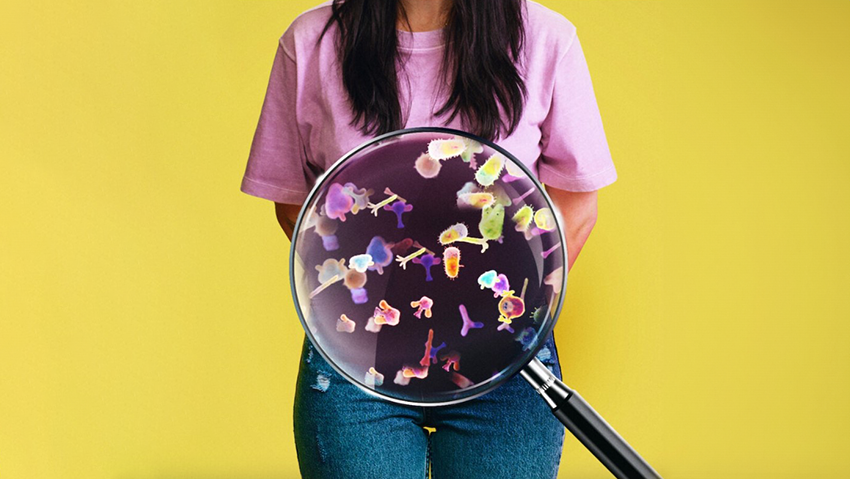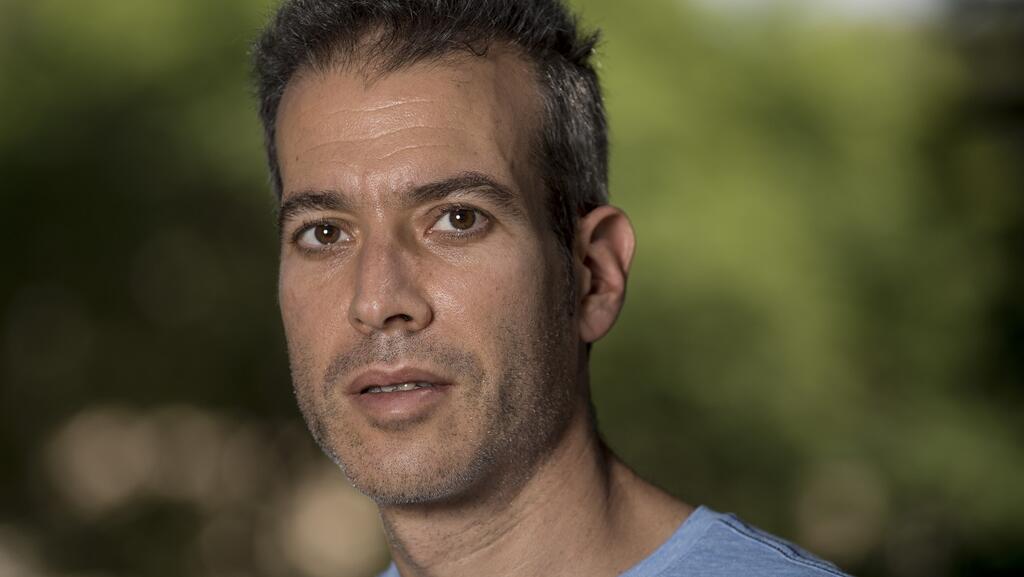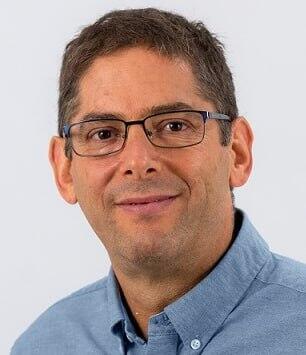Streaming giant Netflix's new documentary Hack Your Health: The Secrets of Your Gut brings the topic of gut bacteria to the forefront, featuring takes from distinguished Israeli scholars.
Prof. Eran Segal, a computational biology expert from the Weizmann Institute of Science, and Prof. Eran Elinav, head of the Department of Systems Immunology at the Weizmann Institute of Science, who took part in the film, told Ynet why gut bacteria are so critical to our health.
The new film deals with the intriguing question of why people who lead similar diets differ in weight and the diseases they may develop. "We’ve been studying this topic for many years," Prof. Segal says, "and we know that trillions of bacteria live in our bodies. In fact, there’s as much bacteria as the number of cells in our bodies.”
“They have a hundred times more genetic diversity than human genes, are involved in every process that occurs in our bodies when we’re healthy and sick, and they produce many of the substances that flow in our blood,” he adds. “In our study, we demonstrate the close connection between the current and future health status of individuals and their diet, a situation in which bacteria play a very active role."
Does this mean three people eating the same thing could have differing health conditions?
Prof. Elinav: "Absolutely, and through research in recent years, we have succeeded in showing this. We’ve advanced the technology to such an extent that, for the first time, we can look at the bacteria and discover that each and every one of us has a different bacterial signature, which in many cases can explain why we react uniquely to food and why we develop diseases in various forms at different ages and under different risks."
In other words, someone can eat a healthy diet and still develop medical conditions?
Prof. Elinav: "Exactly. We have known about this phenomenon for decades. We know people who don’t respond as expected even though they eat healthy or unhealthy food. Some people may eat very healthy food and still develop high blood pressure and heart diseases.
“This diversity among people is very puzzling to us, and bacteria are a very central factor in this situation. Through research on their activity, we can understand why different people react differently to food or why different people develop diseases in different forms."
What is your study about?
Prof. Segal: "First and foremost, it is about mapping the bacteria. We map the bacteria using artificial intelligence (AI) models that we develop. So, of course, the first thing to do is to characterize the bacterial population of a specific person, and once we map it, we can tell what food will actually be good for each individual according to their bacterial population using the models we developed.
"Other places around the world are also trying to map gut bacteria based on their comparison to very large databases, so all these algorithms can adapt the food that suits them best. We have already conducted clinical studies in which we tailored food for people with diabetes and people with pre-diabetes and showed that personalized nutrition indeed improved their clinical indicators related to diabetes or pre-diabetes over time, compared to the diet that supposedly suits everyone."
What were the reactions to your participation in the film?
Prof. Elinav: "Because of the war in Gaza and everything that has happened since, I completely forgot about the film altogether, and then suddenly I found myself on TV screens both in the trailer and in the film itself. We aren’t used to such a degree of exposure in our daily lives, and our work is very meticulous and is done mostly behind the scenes, but the reactions are generally positive, from colleagues in Israel and around the world, and even from Mom. In any case, it is a very worthy and important goal to make the general public aware to this topic."
Prof. Segal: "Many people who have already seen the film say that it made them understand what’s happening in their bodies. After they watched the film, they realized the solution to some of their problems wasn’t what they thought about in the first place. This motivates us to continue studying this topic and develop new therapeutic and intervention tools that will help many people."




